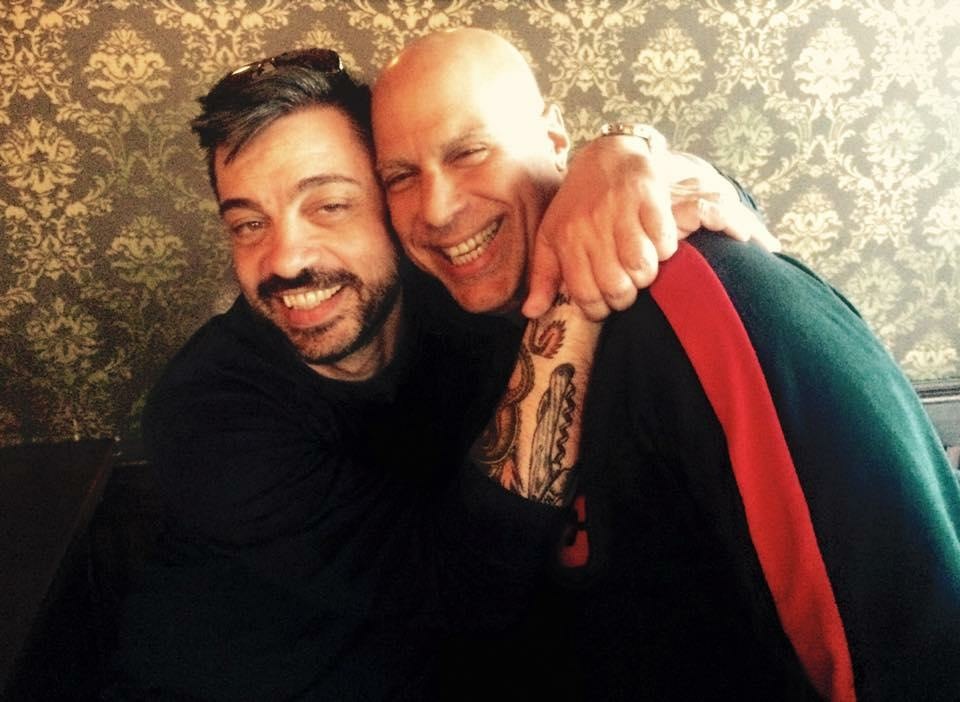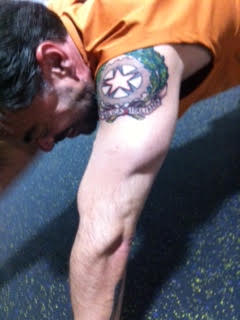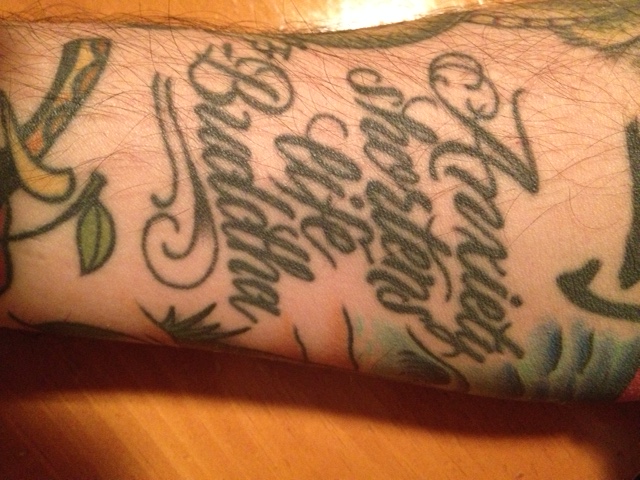When I put out the call asking friends about changes they’d made to improve their health, Tony Marceda volunteered a deeply personal and honest story of learning to manage his anxiety and panic attacks in a way that leaves him feeling like himself.
Part of what I found so powerful about his experience was that he was the only one who knew he was suffering. So Tony’s story isn’t just about his mental and emotional well-being, but a reminder that you never know about another person’s struggles.
Tony shared his experience in an email Q&A:

What’s the problem you were trying to solve?
I suffer from anxiety disorder and panic attacks. On the outside, I looked fine, no one could tell anything was wrong, including my partner of 29 years, Juan.
My doctor did not even attempt a proper diagnosis or find a root cause or offer alternative therapy. You tell them you have anxiety and they immediately prescribe medication: Lexapro (generic Prozac) for long-term usage and Xanax for immediate panic attacks.
I first went on the meds in October 2008. They worked fine, I just did not like they way I felt when taking them. More specifically, I didn’t feel any emotions at all — I used to say “like a zombie” — but like Spock is better analogy.
When you are suffering from anxiety or panic attacks (at least for me), your heart starts racing and you start sweating — I would constantly check my pulse — but somehow you keep it to yourself because you don’t want others to think that you are crazy or call an ambulance, because deep down you know it is not a heart attack, but that is what it feels like.
The depression is a little harder to hard, when you get depressed you don’t want to be around others so I would do one of two things — lash out in anger at the person nearest me (usually Juan) or feign illness and lie down and ask to be left alone.
How did you get there?

I believe I always suffered from anxiety, even at a young age. I believe it is genetic though our family never speaks about it. (Most anxiety sufferers, suffer in silence, it is part of the disease).
Many times during my childhood I remember a great fear washing over me, and my therapy at the time, though I had no idea it was, was reading. I was a voracious reader and spent many hours lost in my books.
My teen and early adult years, I found my solace in recreational drugs and alcohol. When it came time to be a productive member of society, I quit the drugs (I was never an addict, recreational drugs were just another way of treating the disorder) and went to work in the corporate world. Burying myself in my work was a bit of an outlet but the panic attacks became more severe and frequent and were often flowed by bouts of depression.
Did you try some things that didn’t work?
At first I just tried to hide it, as long as I could hide it from others I was good.
However, you find yourself avoiding situations that trigger attacks and lashing out in anger at people you perceive are trying to stimulate the attacks.
That is when I started on the prescription medications. They worked, but I found I did not like myself or how I felt while on the medication. I became more or less a zombie. I always enjoyed sitcoms and I have a huge laugh, obnoxious really. While I was on Prozac, I wouldn’t laugh at all, I also had no sympathetic feelings or felt sadness. (I love a good tear-jerker) I literally felt nothing, and truthfully it way worse than the occasional panic attack.
What did you finally do that worked?
Based on some research my partner, Juan, did when seeking natural alternatives for blood pressure medicine, I began to research natural supplements for anxiety. I found a whole new world of alternative medicine that the FDA and doctors do not support.
I researched books and web pages to find the supplements that would work best for me. Definitive clinical research is severely lacking in homeopathic medicine and supplements but you can find it. I chose a cocktail of Valerian root, theanine (a green tea extract) and passion flower (available in teas and as a supplement).
I took the meds for about a year but I also started my own research. I did not talk to my doctor. I don’t fear doctors but I don’t trust them — most just want to give you a prescription to relive the symptoms. I started with just a few herbs but added more as I continued my research.
I stopped the prescription medication and found I had my personality back and the anxiety under control. It was a non medical miracle for me. I knew deep down inside there had to be a better way.
Have you had challenges sticking to this change?

I still find trigger situations, particularly stress, could lead to an attack, some of which I learned to control through hypnosis, but yoga was the additional therapy I really needed.
I started going to yoga with a friend once a week a few years ago, and found it highly comparable to getting a massage. We went on Saturday mornings and I referred to it as “hangover yoga.” I noticed immediately that I felt euphoric after a class. I started to look into the benefits and found several articles on yoga as an anxiety treatment. It was a happy surprise. I stopped joking about “hangover yoga” and started to take it more seriously.
As I continued my practice, I was able to use the breathing techniques we learned in yoga to control those moments of anxiety I was still having. The panic attacks, anxiety and depression will always be there, but through natural supplements and yoga, I have them well under control.
When you compare where you are today to where you started, what’s the biggest difference?
Leading a so-called “normal life” is the biggest difference. I challenge myself all the time to face those trigger situations and fight (using my breathing techniques) through any attacks.
I have my personality back, I can laugh again, and I don’t mind tearing up at the occasional rom com or sappy commercials — this grown man finds it perfectly normal to cry.
Do you have a goal you’re still working toward?

You are never really cured, it is a chronic disorder that you learn to live with but never let it control you.
If for some reason I can’t get to yoga, the supplements alone do not always work and I find myself having more frequent and severe attacks. I find I must schedule my yoga and workouts in the morning or I will not get them done.
I recently began researching meditation and plan on introducing it in to my anxiety fighting arsenal. It’s a constant battle, but I laughing and smiling my way through it. Namaste.
I’m not a doctor and this post is not intended as medical advice or to suggest what Tony did will work for everyone. I am running a series of posts showcasing what friends have done to improve their health and the overall theme is that each of them listened to their own body to do what worked for .
That much I absolutely do recommend: Pay attention to how you feel, physically and emotionally, and to what seems to make your issues better or worse. In fact, here’s a post from 2009 about learning to fend off migraines by watching for my triggers.
Related posts:
- Personal trainer Julia Collins changes her own approach to wellness
- Allison Tray finally gets some sleep after tackling her insomnia
- Getting started meditating, making time for myself
- Yoga as the antidote to the always-multitasking Internet brain
- Negative feelings can make your brain feel good, so fight back with better feel-good activities

Leave a reply